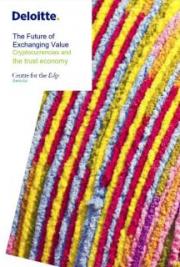PART EIGHT
Topics
needing
further
consideration
478
Section XVIII
The scope and future of
reward
Reward: attraction vs retention
Reward definitely is one of the most fascinating HR topics and its significance is the more
and more destined to top and firmly remain high on the business leaders’ agenda,
especially on that of financial institutions boards.
The growing interest in reward management, however, is not purely scientific or
rhetoric-based; employers are typically extremely pragmatic and what interest them the
most is their organization gaining competitive edge and being successful in the market
they compete in. Reward is important and is regarded as an essential aspect of modern
management in that it is believed that appropriate reward management practices can
effectually help employers to attain their intended objectives and ultimately strategy.
The debate over the alleged or potential motivating effects of reward can be considered
as an ever-lasting, old dispute which has very often caused controversy. Individuals are
different one another; yet, individual preferences and wants are also likely to change in
the course of time. The exogenous environment and the constant technological advances
clearly play a fundamental role in this sense, but also the national and global economic
and financial factors have a remarkable impact. Last but not least, the demographic
aspect is surely likely to gain a growing relevance on account of the ageing population
phenomenon. Individual needs are becoming, by extension, the more and more dynamic.
The reward packages designed and developed by reward managers must aim at meeting
these needs so that, as it happens with marketing, employers have to offer to their
employees not the reward packages they like to offer the most or are most comfortable
to offer, but rather the reward packages their employees would like to receive the most.
When designing reward packages reward professionals have to consider what final aim
they want to pursue in practice.
479
The scope and future of reward
There is a rather wide consent to consider financial rewards effective to attract new
talents and more in general new staff; but it is also widespread the conviction that this
magnetic effect is due to vanish into thin air fairly soon. This entails that, whether an
employer needs to recruit an individual from the external environment to fill a new role,
this can successfully have recourse to financial reward as an appropriate leverage to
attract and lure quality people, safe in the knowledge that this will not be enough to
induce the individual to do his/her best over time. Before recruiting a new employee,
reward specialists should not just care about the reward package to offer to the most
suitable candidate, but should also have clear the plan of action necessary to retain this
in the future, namely the design and composition of the financial and non-financial
reward package.
Employers necessarily need to be far-sighted; they are aware that in order to attract
skilled individuals there is the need to offer these appealing financial reward packages,
which they are usually willing to offer, but it has also to be clear from the outset what
reward packages they have to offer to retain these individuals in the future and receive
their best contribution to the attainment of the business strategy over time.
This is clearly not an exclusive reward matter. Whether, for instance, the person would
not fit the organizational culture or has misunderstood the content of his/her role, there
will not be reward package worth to retain the individual. In such circumstances, it
would be better recognize the recruitment mistake, bear the pointless waste of money
associated with it and with the induction process and start back seeking for a genuinely
suitable candidate.
The fact that employers should plan for each high-flyer an appropriate reward package
enabling them to both attract and retain these, does not mean that reward specialists
have to prepare a plan of salary increases for the newcomers. As discussed in many
occasions earlier, the effect of money would not in any case be long-lasting and, unless
there would not be the employer availability to cover individuals with cash, which sooner
or later would reveal to be in any case insufficient, the retention objective has to be
clearly pursued having recourse to other means.
Inasmuch as there is a wider consent amongst practitioners and academics on the
effectiveness of financial reward to attract new staff, there also is a rather widespread
agreement on considering non-financial rewards effective and, in any case, much more
effective than financial rewards to motivate and engage people. Engaged and motivated
people are clearly more likely to genuinely and spontaneously go the extra mile and
contribute to organizational success.
In order to retain people employers and reward professionals should not therefore insist
on the financial components of rewards, but should rather identify and develop
appropriate and sound non-financial, intrinsic forms of rewards. These components of
the overall reward package will contribute to individuals working with dedication. Non-
financial rewards will also contribute to induce individuals to develop a feeling of
480
The scope and future of reward
involvement and participation on the organizational success and to increase in turn their
sense of citizenship.
All in all, it clearly emerges that total reward approaches are the most, or rather, the
only suitable approaches employers and reward managers can have recourse to in order
to retain and keep employees motivated. Although the role of money may become of
secondary importance in order to motivate people during the employment relationship,
money will invariably continue to talk. The importance of financial reward, by extension,
as to never been neglected or overlooked by employers. Individuals will invariably
associate with money a relevant degree of importance and, even though they might not
constantly think about financial rewards when performing their day-to-day activities,
they could anyway perceive a pay increase as something they deserve or as a need. To
this extent two elements play a particularly remarkable role: pay decisions fairness and
the individual general financial circumstances.
Despite employers could be happy with their financial reward package and their daily
activities, these could feel to be treated unfairly by their employer whether this should
grant unjustified and unsustainable pay increases to some individuals. The knock-on
effect produced by such circumstance can be extremely detrimental for the business and
risks seriously and irreversibly jeopardising the relationship of trust established between
employer and employees.
Internal fairness clearly represents a critical factor, but the external labour market and
the pressures coming from it have to be duly taken into consideration too.
It is also important to clearly explain employees the worth of their overall reward
package composition taking also into consideration, for instance, benefits and deferred
benefits. Some employers may offer more generous pay, whereas offering very poor
benefits and pension contributions. It is crucially important that these aspects are
constantly and clearly communicated to staff and to external candidates when offering a
job.
Financial rewards will also invariably be in the mind of individuals as long as these have
not reached somewhat of a financial comfort zone. As long as individuals will be
struggling to pay their monthly bills (utilities, mortgages, children school fees, public
transport season tickets, etc.) it is hardly imaginable that these could pay lip service to
the importance of their pay. Sometimes, this circumstance can also give rise to
undesirable family tensions, which can in turn unconsciously affect employee
performance and behaviour at work.
Despite money may not be considered a powerful motivator, its hygiene factor definitely
still counts and has to be properly and constantly taken into consideration by employers
and reward managers.
Considering financial and non-financial rewards separately the ones from the others, it
could be concluded that financial rewards would be the winners of the attraction contest,
481
The scope and future of reward
whereas non-financial rewards would be the winners of the retention tournament.
However, both of them clearly play a significant role in both competitions.
The synergetic, multiplicative effect produced by financial and non-financial rewards
used in combination, can enable employers to attain in practice their intended objectives,
namely to attract and retain quality staff. Total rewards approaches are key in this sense.
This does not clearly mean that attracting and retaining quality individuals is a
straightforward task. People wants and preferences are subject to change over time. Yet,
many other employers strive to recruit high-flyers and quality individuals.
Using fairness, consistency and integrity is of paramount importance, but genuinely
considering and taking into account employees needs is of crucial importance too. It is
essential first and foremost to know employees and their needs; this is the starting point,
differently any employer action and initiative would just reveal to be a waste of energies
and resources. It would be like filling stores shelves with products that the manufacturer
considers outstanding, but which customers do not like so that these remains and are
destined to remain unsold in the stores shelves.
The role played by reward professionals, HR, line managers and
consultants
Once reward strategy has been formulated, task which is usually executed by reward
managers and professionals in close collaboration with HR executives or senior managers,
this has to be translated into practices and policies, which need then to be implemented.
This last stage is particularly important in that it is just on the execution phase that
depends whether the policies formulated in writing will produce the desired and expected
outcome in practice.
The function of reward professionals
The role of reward professionals in reward strategy and practices development is
definitely central. In order to being capable of effectively and properly perform their
important task, however, these clearly need to have an overarching knowledge of the
business and of its culture, and of the different reward trends and theories which may
help these to identify different possible solutions and, amongst these, the one mostly
fitting the organization circumstances and ambitions.
To effectually undertake their work reward specialists should adopt a research approach
aiming at investigating the business reward system and trying to determine effective and
sound ways to regularly improve it. The findings of the investigation and the consequent
emerged theories will be then the object of critical evaluation and study to determine
whether these can be successfully and consistently applied to the organization (Longo,
2012). Care need to be taken both with theory and practice; as an anonymous once said
“theory without practice is sterile, practice without theory is futile (in Armstrong, 2010).”
This concept has even more effectively been expressed by McGregor (1960) who
suggested that there is nothing as practical as a good theory; considering as theory an
482
The scope and future of reward
assumption supported by rigorous research carried out within businesses telling how
things are and not how things are supposed to be.
This process has to be reinforced by the constant observation and analysis of the
external environment, against which the internal circumstances have hence to be
benchmarked. However, since the one-size-fits-all approach is not really likely to work in
reward management, even though careful and constant consideration have to be paid to
good and best practices, to identify the most appropriate solutions for their organization,
reward specialists should better work according to the tenet of best fit (Armstrong,
2010).
Technical knowledge and expertise definitely represent mandatory requisites, but a good
dose of creativity and innovation may reveal somewhat of a secret weapon enabling an
organization to gain the competitive edge all employers strive to gain. These skills and
competencies have to be constantly nurtured by reward professionals.
Once policies have been prepared these also need to be regularly reviewed and assessed
in order to ensure that these are still consistent with the business strategy and in line
with both the objectives pursued by the organization and the culture fostered within it.
The significance of HR
The role of HR, together with that played by reward professionals, can reveal to be of
paramount importance. As it occurs when implementing all of the other policies, the full
involvement of every single individual within the company is indeed necessary. In
general, the main actors are represented by HR and line managers, but, in this case,
reward professionals further support, albeit as part of the HR function, is paramount too.
The role of HR, as well as that of reward specialists, acquires a particular importance
before, during and after reward policies implementation. HR in actual fact actively
participates in the policies development process together with reward professionals,
provides support and guidance to line managers during the implementation stage and,
after policies implementation, assesses whether these are actually and effectively
meeting the pre-identified objectives, that is, supporting the business and its
performance.
The role of line managers
Inasmuch as line managers are extremely important in practice for the implementation
of HR policies and indeed for whatever type of policy within a business, they also
definitely are the individuals within each organization who better know the employees
directly reporting to them. Unsurprisingly, these are by extension widely considered as
the best positioned people to make decisions about their staff pay. In general, this
assumption can be supportable; however there are a few aspects which need to be
carefully taken into consideration.
The most immediate is associated with the circumstance that, in order to properly
manage the process, line managers should have a thorough knowledge of the reward
483
The scope and future of reward
practices and system existing within the business. This knowledge is indeed necessary
not only to properly operate in practice the system, but also to explain its mechanism to
employees when required. Yet, managers are usually overwhelmed with their daily
activities and it is unlikely that, even receiving the required training, these might have
the time, and in some cases may even be the willingness, to deal with reward issues at
this level. Essentially, managers could perceive their participation in reward
implementation practices as a sheer additional burden distracting them from their core
activities.
HR and reward professionals’ help could definitely be beneficial; nevertheless, this
collaboration may potentially produce some drawbacks. The circumstance that line
managers would execute reward practices with the help of HR and reward professionals
might in fact be interpreted by employees as a consequence of their managers’ inability
to autonomously perform these activities or as a restriction to their leeway. Even more
so, when line managers have already been fully devolved this activity and subsequently
this has been taken back by HR and reward specialists. This may indeed be perceived by
employees as their manager loss of authority and prestige and could in turn cause
employees’ loss of trust on their managers.
This process has been effectively described by Brown and Purcell (2007):
-
Line managers receive growing responsibility for managing, with marginal HR
support, even complex pay processes,
-
These hence experience hardships to deal with the process, also for lack of the
required skills,
-
HR therefore needs to take back responsibility of the process with the
consequence that line managers feel undermined their role and lose their direct
reports trust and respect.
This is a real conundrum for employers and reward managers, but the recipe suggested
by Armstrong (2010) could actually help these to properly and effectively tackle the
issue:
Train managers ability to identify and properly manage the key aspects they have
to deal with to make pay-related choices,
Provide them clear, simple and specific guidelines to drive their decisions,
Offer them constant assistance to properly implement these.
It is, however, of paramount importance that HR would invariably support line managers
in a discreet, non-invasive and non-intrusive fashion.
Teamwork is paramount
As maintained by Armstrong (2010), HR should mainly offer line managers suggestions
and provide them guidance. Yet, HR should also make sure that managers’ decisions are
unbiased and that these are actually putting in practice what they have learned in theory
during the training sessions provided by the employer. Whether some problems should
arise these should be carefully tackled by HR and appropriate action timely identified and
484
The scope and future of reward
planned with the help of reward specialists. Once again, it is crucially important that
these activities are all carried out as inconspicuously as possible.
The circumstance that line managers, HR and reward specialists work and collaborate
together, however, may and should not necessarily been negatively perceived by line
managers and their staff. The role played by HR and reward professionals is that to
support line managers in an activity requiring an expertise and skills which not
necessarily are part of all managers’ know-how and background. Organizational culture
can clearly help and, possibly, such approach to reward practices implementation may in
turn help and sustain organizational culture. Whether employers should in fact aiming at
fostering within the business teamwork and, more in general, the importance of
collaborating the one with the others for the attainment of a common objective, this
approach could definitely reveal to be particularly helpful. HR and reward professionals
will support line managers with their expertise and technical knowledge in order to these
making appropriate decisions on the basis of a structured approach aiming at ensuring
consistency and fairness to the process across the organization. The final decision,
however, will always rest with line managers.
Communication, as usual, can definitely reveal to be crucial. Openly communicating the
reason of such collaboration amongst functions, clearly pointing out and explaining that
it is not a matter of control or dominance of a function or role over the other, should
prevent to jeopardize line managers’ standing and authority, whereas conferring to the
reward practices implementation process much more consistency and uniformity across
the business. Indeed, the discreet presence of HR and reward professionals could also
help to audit the system and ensure consistency and uniformity of reward practices
execution and application across all the business functions, departments and units.
Reward practitioners
Reward practices could reveal to be particularly effective to support employers in
attaining business strategy, encouraging desired behaviour, stimulating sustained
performance, fostering organizational culture and ultimately promoting integrity. Reward
managers and specialists need hence to have the skills and expertise required to
understand the business and the employer’s needs and expectations, making it possible
these to be met. Develop appropriate reward systems and support the employer in its
struggle in the market competition, ensuring that this gains genuine competitive edge,
represent tasks that reward specialists should absolutely capable to effectively manage.
Formulating sound reward policies and devising appropriate pay systems requires
individuals in charge of these activities to have a combination of different professional
skills: technical expertise, a deep understanding of the business and of the way it is run,
project management skills, capability to innovate and support change and the ability to
think and act strategically can all be nowadays considered mandatory. Organizations
cannot invariably have internally the required know-how and capability necessary to
execute such important and complex activities. Multinationals and big corporations
usually have structured HR functions where reward executives and managers have the
experience and expertise to take care of these aspects, but mid-size and smaller
485
The scope and future of reward
organizations could find it particular expensive and, according to the circumstances,
inappropriate to structure their HR functions including high-calibre reward specialists. For
these organizations having re







